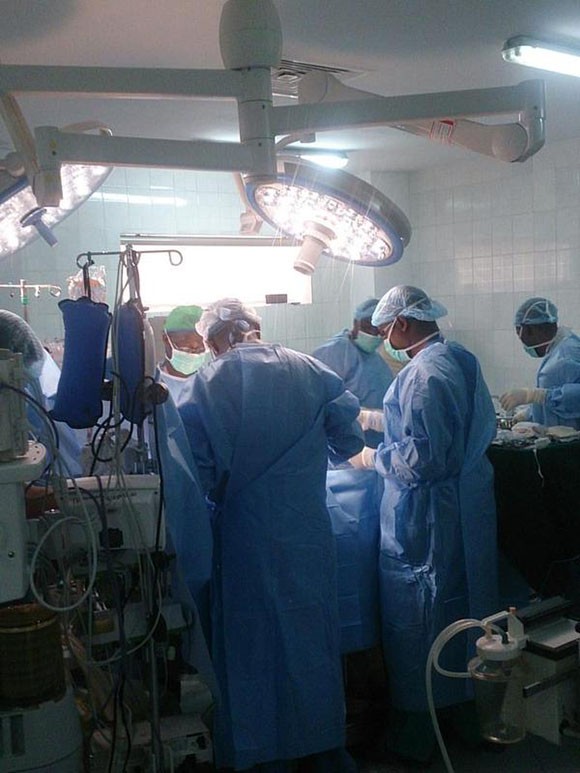By Enitan Sawyerr
First of its kind: Nigerian hospital performs open heart surgery ‘live’ on social media
The National Hospital Abuja live-tweeted an operation to repair a hole in the heart of an eight-year-old girl; the first time a Nigerian hospital has used social media to give the public a glimpse into the surgery. Followers were kept informed with live tweet updates of the successful operation, which lasted around three hours. Dr Tayo Haastrup, the hospital spokesman, explained that the aim was to increase awareness of the country’s medical capabilities. “We have a lot of Nigerians in need of these operations. This is for them to know it is possible to do it in this country.” The operation was the third in a series of ten major heart procedures at the hospital in collaboration with a US charity, Hospitals for Humanity. Three more have been performed since then.
This is the latest in a run of similar stories. The University of Ilorin Teaching Hospital (UITH) performed two successful open heart surgeries for the first time in July.
Why the Health Insurance Bill should be implemented:
In a recent visit to BusinessDay, the Health and Managed Care Association of Nigeria (HMCAN) called on President Buhari to give his assent to the National Health Insurance Commission Bill. Passage of the Bill is an important part of the overall strategy to achieve universal health coverage (UHC). For example, it will make it compulsory for all employers of five people and more to provide health plans for their staff and families.
Achieving universal health coverage, one State at a time
The prospects for universal health care in the Nigeria got another boost this month. Delta, Sokoto, Benue, Ebonyi and Kano are exploring health insurance schemes for their individual states. In Ebonyi for example, the NHIS has sent a bill to the State House of Assembly that would provide civil servants with free access to healthcare. For others such as Sokoto, it is still early days. Governor Aminu Waziri Tambuwal said that he will seek broad agreement with key stakeholders including religious scholars to confirm the position of Islam on health insurance.
The NHIS on its part will match funds states puts into their schemes with resources from the National Health Act. This will ensure the generation of sufficient capacity to deliver effective health insurance programmes on a sustainable basis.
Bureaucracy ‘stalling’ mobile health insurance
In 2014, the NHIS launched the mobile health initiative with the aim of leveraging the wide penetration of mobile phones to provide affordable health plans. Currently available to Airtel, Glo and MTN customers, this airtime-based insurance provides increasing healthcare benefits based on weekly or monthly airtime recharge. Unfortunately, all has not gone according to plan.
One year one, the NIHIS cites bureaucracy as the biggest hurdle to implementation. It says that significant government fees are being paid by the mobile phone operators and these ‘administrative charges’ are taken from the pool of funds allocated to the NHIS to manage the scheme. It also highlighted how it has to work with several agencies including the Nigerian Communication Commission and National Identity Management Corporation; a process mired in red tape.

